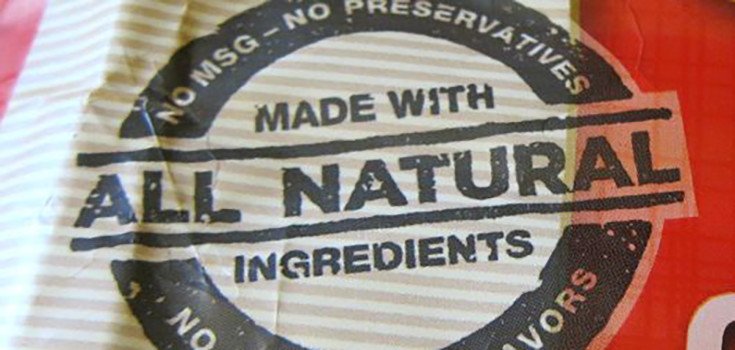Tell the FDA What “Natural” Should Mean for Food Products

Last week, the U.S. Food and Drug Administration (FDA) opened a 90-day comment period for the public to share its thoughts concerning how the word “natural” should be defined on food labels.
To keep up with consumer demands for organic, GMO products, food companies have been slapping terms like “natural,” “all natural,” “simply made,” and “made with natural ingredients” on their goods, but there aren’t any formal rules or regulations that determine what they mean.
The difficult-to-pronounce ingredients listed on food labels are “generally recognized as safe” by the FDA, but this obviously makes it nearly impossible for consumers to know what they’re eating. This is why the U.S. health watchdog is looking for input. The agency specifically wants to know whether it’s appropriate to define the term “natural,” and if so, how.
Current FDA standards dictate that for foods to be considered “natural,” they must contain no artificial or synthetic ingredients. The agency admits, however, that those standards don’t apply to food production methods, such as pesticide use, manufacturing methods like thermal technologies, pasteurization and irradiation. [1]
A survey of 1,000 U.S. adults last year found that Americans misunderstand the meaning of the term “natural” as it relates to food. Consumer Reports found that two-thirds of consumers believed that “natural” meant that the food was free of GMOs, pesticides or artificial ingredients. More than half of survey respondents believed that the “natural” label on meat meant that the animals’ feed did not contain growth hormones, antibiotics or other drugs. [2]
Consumer Reports launched a campaign in June 2014 to ban the word “natural” on food due to the public’s misunderstanding of the term and the FDA’s slowness in defining it.
Some companies are slowly making changes on their own. For example, Kraft has vowed to remove the bright yellow color from its classic mac and cheese by next year. The brilliant hue is the result of a synthetic dye. In early 2014, the company removed sorbic acid from its full-fat American and White American types of cheeses.
In addition, General Mills says it will remove the artificial dyes in its cereals and replace them with natural alternatives like beet juice and
The question is: will the beet juice come from genetically modified sugar beets?
Kellogg’s, the maker of such cereals as Corn Flakes and Froot Loops, use “Roundup ready” GMO sugar beets to sweeten their products.
Well, Americans aren’t putting up with it anymore.
Many food companies are rolling out changes because of consumer advocate petitions. Additionally, lawsuits between private parties regarding whether foods are genetically modified or contain high fructose corn syrup have led some federal courts to ask the FDA for a formal definition.
The changes are also motivated by money; a report this year shows 80% of consumers would gladly pay more money for natural products.
The FDA is accepting comments online or via mail from now through February 10, 2016.
Sources:
[1] CNN
[2] Yahoo! Health
[3] CBS News

This is actually a really good thing to discuss, not only for regulatory reasons. Many people don’t appreciate how much agriculture, organic or otherwise, has changed the plants we eat and changes the environment in which plants are grown.
Ca. TWO MILLION Americans sent FDA objections regarding GMO salmon. FDA approved it anyway. How many millions of Americans will FDA ignore regarding getting an appropriate “natural” label?
FDA is funded by the industries it’s supposed to regulate. FDA is corrupt and untrustworthy.